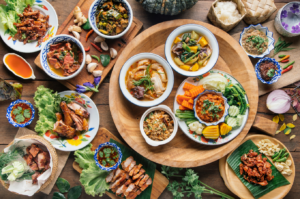
In 2018, BBC Culture polled literary experts around the world to “nominate up to five fictional stories they felt had shaped mindsets or influenced history.” They received responses from 108 writers, critics, journalists, academics, and translators from 35 countries, who selected novels, folk tales, poetry, and dramas in 33 different languages. We ran a piece on the findings of these experts, which included our editor-in-chief Ainehi Edoro. That list included Chinua Achebe’s Things Fall Apart (picked by Ainehi Edoro), Okot p’Bitek’s epic poem Song of Lawino, as well as Tsitsi Dangarembga’s novel Nervous Conditions.
This November, BBC Arts reached out to a panel of writers, curators and critics to select 100 novels that impacted their lives. The 100 novels on the list, all written in the English language and published over the last three centuries, range from children’s classics to popular page-turners. Unlike last year’s list, which was ranked from “1” to “100,” with “1” being the story that had most shaped mindsets or influenced history, this year’s list is divided into 10 categories. The categories are ‘Identity’, ‘Love, Sex & Romance’, ‘Adventure’, ‘Life, Death, and Other Worlds’, ‘Politics, Power & Protest’, ‘Class and Society’, ‘Coming of Age’, ‘Family and Friendship’, ‘Crime & Conflict’ and ‘Rule Breakers.’
Five novels by African authors are included in this list of 100. Three of the novels fall under the category ‘Identity.’ These include Things Fall Apart by Chinua Achebe, Half of a Yellow Sun by Chimamanda Ngozi Adichie, and Homegoing by Yaa Gyasi. On Half of a Yellow Sun, one of the panelists, Mariella Frostrup, commented:
In this epic saga, Ngozi Adichie ably highlights the fragility of life, the terrors of war and the redemptive qualities of love.
Ben Okri’s Astonishing the Gods is listed under the category of ‘Life, Death, and Other Worlds.’ J.M. Coetzee’s Disgrace is listed under ‘Class & Society.’
According to BBC reportage, this year’s list is intended to commemorate the 300th anniversary of Daniel Defoe’s Robinson Crusoe, which is commonly taken to be the progenitor of the English-language novel. In the words of BBC Arts director Jonty Claypole, the unveiling of the list kickstarts
a year of documentaries, author profiles, podcasts, and outreach events all designed to do one thing and inspire everyone, whoever they are, to read more novels because of the proven life-enhancing benefits it brings.
A three-part BBC Two series, Novels That Shaped Our World, begins airing on November 9, and will explore the novel from the perspective of women’s voices, the British empire, and working-class experiences. We’ll be tuning in especially for the segments on African authors and novels.








COMMENTS -
Reader Interactions